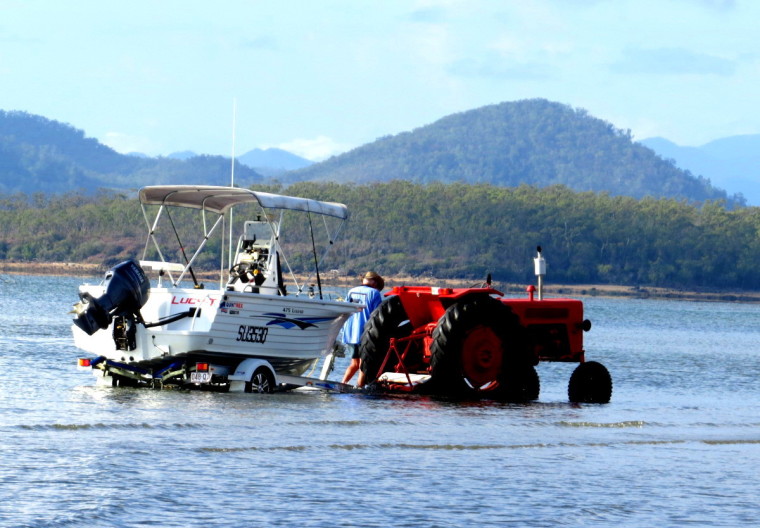

The New Year is only a few weeks old, but we have already planning another celebration, Australia Day.
We have been bombarded with all sorts of advertising, from the now ubiquitous Aussie lamb spots—admittedly with a very cool twist this year—to the official line of "your way" with its own hashtag.
Today, Australia Day, the media will be filled with images of Aussie enjoying the day, waving flags and slathered in appropriately coloured zinc. There will be the Australia Day honours, and the discussion thereof.
Bringing us together?
At its heart, the whole point of Australia Day is to bring us all together, to act a focal point for all Australians to join together in celebrating all the great things about this country. We are a nation made up from all the corners of the world, a mix of people who arrived days ago, to people who can trace their ancestry back to a starving waif sent here for stealing bread in the London Slums—not to mention those who have been here since before recorded history.
In principle that sounds like a noble purpose, after all, who doesn't want to see a putting aside of whatever differences divide the multitude of faces that make up this nation? But, I would argue that Australia Day is actually, by its very nature, a day that excludes a large part of the population, and hinders, rather than helps, create unity across the land.
Different things to different people
There are two reasons for this. The first, and easiest to pinpoint, is the date we have picked to commemorate our country is one that comes will all sorts of baggage. January 26 is the day that the First Fleet landed, and the British flag was raised on Australian soil. As most of you would know, the First Fleet was composed mainly of convicts, their guards, and the political apparatus to run this new colony—a motley crew indeed.
There are a number of things that make choosing this date problematic, to say the least. For a start, at that point there was no real idea of Australia as an independent nation, or even a country. It was a group of colonies under the direct rule of the British Empire. It didn't mark the discovery of the continent—even if you are one of those people who discount the original inhabitants, the Dutch had been there before. Nor did it commemorate some sort of noble struggle for independence or self-identity, it would be over a century before Australia even close, 150 years before it took concrete steps to be its own nation.
But, looming above all these reasons and casting a malignant shadow of what should be a day of fun, sun and celebration, is this simple fact. By picking January 26 we are sending a message to a group of Australians who have been marginalized for 200 years that they are still not welcome at the party. For indigenous Australians, this day marks a moment of invasion, when foreigners came and took away what had been theirs for millennia. Asking them to happily celebrate this day is tantamount to asking the French to scrap Bastille Day and instead break out the barbecue on the anniversary of the day German tanks rolled down the Champs Élysée.
Time for a change
So, what day should we be celebrating instead? Pin down a politician and they would probably suggest ANZAC Day, widely considered the birthplace of a sense of national identity.
While I am proud to commemorate this day in honour of those who have served and died for our country, I think that it should be left to stand on its own rather being merged into another holiday—and I don't like the increasingly militarization of our patriotism as it is. Tongue-in-cheek I might suggest that we set aside the 14th of January, the anniversary of the day that Harold Larwood hit Bill Woodful in the infamous Bodyline series. It was this series that strained the ties between England and Australia in an unprecedented fashion, after all!
Personally, I think that we need look no further than the day that Australia actually became a country in its own right—the first of January, 1901. It was then that all the states officially came together as one country, rather than simply colonies of Great Britain. Of course, none of us want to lose a public holiday so we wouldn't want to celebrate it on New Year's Day (thought might have some great symbolism). We could perhaps choose July 9, the date that Royal Assent was passed in 1900.
This day would be about coming together as a country, not celebrating the subjugation of one part of our population by another or the tragedy of war.
The voyage to self discovery
The second reason why Australia Day falls short is much harder to solve, and comes down to a question about the very nature of the country we are celebrating. Even the official hashtag points to the problem, asking us to celebrate it our own way—putting the focus on the individual not the collective. What is our national character? What are our core values as a nation? And, most importantly, what does it mean to be Australian?

I don't think we are sure of the answer to those questions, which makes it possible for a true coming together on Australia Day. The digger, the bushranger, the convict, the ten pound Pom, the beach bum, the refugee, the illegal immigrant, the good blokes and the bonza sheilas—none of the media interpretations of our past or present are capable of encompassing the whole of this diverse nation. Not everyone wants a beer and barbecue. We need to think deeply about what it means to be an Australian so we all have a common goal to move towards.
We can promote Australia Day as much as we want, or institute a new day, but until know what it is we are celebrating we will never have a day where we all can come together.
As a Christian I know exactly what Easter celebrates!
David Goodwin is the former Editor of The Salvation Army's magazine, On Fire. He is a freelance writer, and an unapologetic geek.
David Goodwin's archive of articles may be viewed at http://www.pressserviceinternational.org/david-goodwin.html
